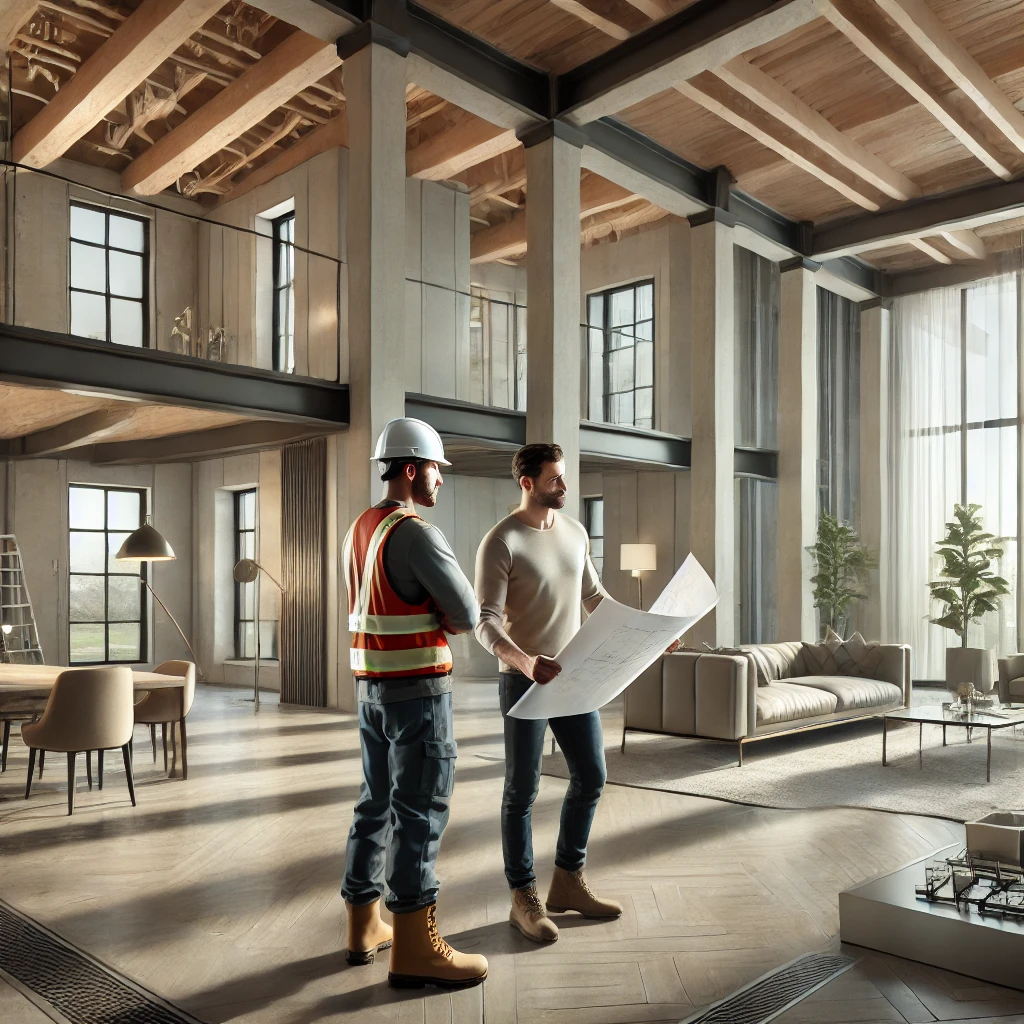
Hiring a general contractor is one of the most important decisions you’ll make when undertaking a construction project, whether it’s a home renovation, a commercial build-out, or a complete new construction. The right general contractor can turn your vision into reality, delivering high-quality work on time and within budget. However, hiring the wrong contractor can lead to delays, unexpected costs, and even legal issues. To help you navigate this critical process, here are ten essential things you should know before hiring a general contractor.
1- Understand the Scope of Your Project
Before you even begin searching for a general contractor, it’s essential to have a clear understanding of your project’s scope. This includes knowing what you want to achieve, your budget, and your timeline. Having a detailed plan or a clear idea of your goals will help you communicate your needs to potential contractors and ensure that you hire someone with the right skills and experience for the job.
•Tip: Create a project brief that outlines the specific tasks involved, the materials you prefer, and any design elements that are important to you. This will serve as a reference point during your discussions with contractors.
2-Check Licenses and Insurance
One of the first things to verify when hiring a general contractor is whether they are licensed and insured. In many states, including California, contractors must hold a valid license to legally perform construction work. Licensing ensures that the contractor has met certain qualifications and adheres to industry standards. Insurance, on the other hand, protects you from liability in case of accidents or damage during the project.
•Tip: Ask for the contractor’s license number and verify it with your state’s licensing board. Also, request proof of insurance, including general liability and workers’ compensation coverage.
3. Research Their Experience and Expertise
Experience is a critical factor when choosing a general contractor. You want someone who has successfully completed projects similar to yours and has the expertise to handle any challenges that may arise. Look for contractors with a proven track record in the type of construction or renovation you need, whether it’s residential, commercial, or specialty projects.
•Tip: Ask the contractor about their experience with similar projects and request to see a portfolio of their work. This will give you a better idea of their capabilities and style.
4. Read Reviews and Get References
Online reviews and references from past clients are valuable resources when evaluating a general contractor. Reviews can provide insights into the contractor’s reliability, work quality, and customer service. References, on the other hand, allow you to speak directly with previous clients to get a firsthand account of their experience.
•Tip: Don’t just rely on the testimonials provided by the contractor. Check third-party review sites like Yelp, Google, and the Better Business Bureau for a more comprehensive view. When speaking with references, ask about the contractor’s communication, timeliness, and how they handled any issues that arose during the project.

5. Understand the Contractor’s Process
Every general contractor has a unique process for managing projects. It’s important to understand how they plan to handle your project, from initial consultation to final inspection. This includes their approach to budgeting, scheduling, and communication. A well-defined process indicates that the contractor is organized and capable of managing complex projects.
•Tip: During your initial meetings, ask the contractor to walk you through their project management process. This should include how they handle changes or unexpected challenges, as well as how often they provide updates.
6. Get Detailed Estimates
When you request estimates from general contractors, make sure they are detailed and itemized. A comprehensive estimate should break down the costs of labor, materials, permits, and any other expenses related to the project. This transparency helps you compare bids more accurately and ensures there are no hidden costs later on.
•Tip: Be wary of estimates that are significantly lower than others. While it might be tempting to choose the cheapest option, it could indicate that the contractor is cutting corners or may hit you with unexpected costs later.
7. Review the Contract Thoroughly
Before you sign any agreement, it’s crucial to review the contract thoroughly. The contract should clearly outline the scope of work, payment schedule, timeline, and any warranties or guarantees. It should also include clauses for handling disputes and changes to the project. A well-drafted contract protects both you and the contractor and ensures that everyone is on the same page.
•Tip: If you’re unsure about any part of the contract, don’t hesitate to ask for clarification or consult with a legal professional. It’s better to address any concerns upfront than to face complications down the line.
8. Clarify Payment Terms
Understanding the payment terms before starting the project is crucial. Most general contractors will require a deposit upfront, followed by payments at various stages of the project. It’s important to ensure that the payment schedule is tied to specific milestones, so you only pay for work that has been completed.
9. Ensure Clear Communication
Effective communication is key to a successful construction project. Your general contractor should be someone who listens to your concerns, provides regular updates, and is responsive to your questions. Clear communication helps prevent misunderstandings and ensures that the project stays on track.
•Tip: Establish a communication plan with your contractor before the project begins. This should include how often you’ll receive updates, who your main point of contact will be, and the best way to reach them in case of urgent matters.
10. Understand the Warranty and Follow-Up Services
A reputable general contractor should offer warranties on their work and be willing to provide follow-up services if any issues arise after the project is completed. This warranty typically covers defects in workmanship or materials for a specified period. Understanding the warranty terms and the contractor’s commitment to follow-up services is essential for your peace of mind.
•Tip: Ask for the warranty details in writing and make sure you understand what is covered and for how long. Also, inquire about the contractor’s process for addressing any issues that may arise after the project is completed.
Hiring the right general contractor is crucial to the success of your construction or renovation project. By taking the time to research, ask the right questions, and understand the contractor’s process, you can make an informed decision that leads to a smooth and successful project. At Oceanfront Builders, we pride ourselves on delivering high-quality work with a focus on clear communication, transparency, and customer satisfaction. If you’re planning a construction project in Los Angeles , we’re here to help you every step of the way.






